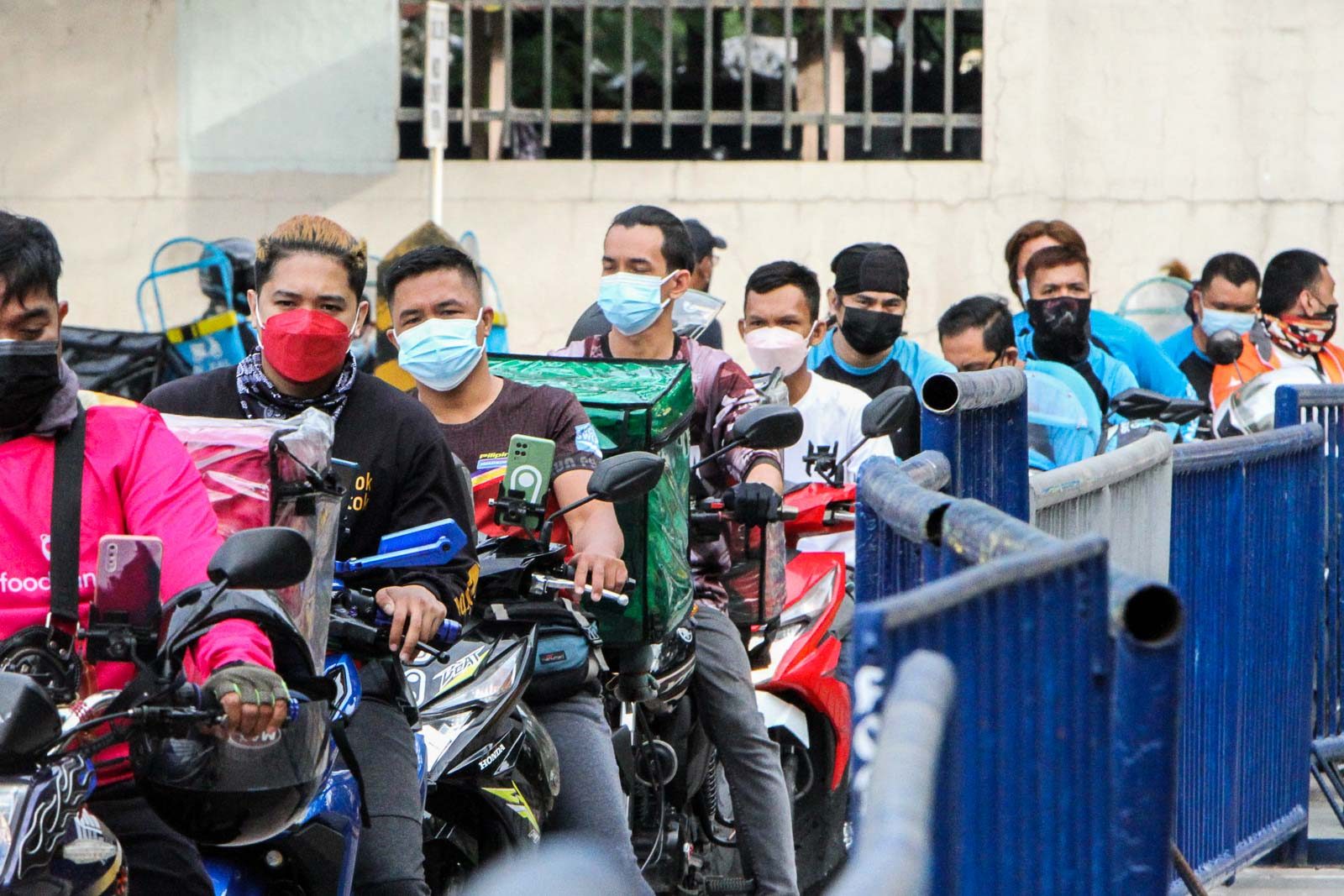SUMMARY
This is AI generated summarization, which may have errors. For context, always refer to the full article.

MANILA, Philippines – In a bid to protect delivery riders against scammers, senators have passed a bill that seeks to punish those behind bogus food and grocery online orders with jail time of up to six months.
Editor’s Note: The title of the earlier version of this story reported that the proposed jail time is up to six years. This has been corrected.
Voting 23-0-0, the Philippine Senate unanimously passed Senate Bill (SB) 2302 or the proposed Food, Grocery, and Pharmacy Delivery Services Protection Act on third and final reading on Monday, January 17. Only detained opposition senator Leila de Lima was unable to cast her vote.
Under SB 2302, it is unlawful for any person to place an order in the name of another without the latter’s consent. It would also be unlawful to place an order under a fake name or address.
The bill then also prohibits a person from “unjustly” refusing to receive an unpaid order if it was placed under his or her authority.
SB 2302 bars any person from using the information of another when registering for any food, grocery, and pharmacy delivery service.
Cancellation of confirmed orders would also not be allowed, unless the service provider allows such option.
Anyone caught violating these provisions face jail time of one to six months and/or a fine of up to P100,000, “without prejudice to any other available remedies under existing laws.”
The measure would also task service providers to require customers to provide valid proof of identity and their residential address when registering for their mobile phone applications, websites, and similar platforms.
Service providers also cannot require their riders and drivers to shoulder the advance payment for online orders. If a customer cancels an order, the service provider would still have to pay the service fee for the riders and drivers.
There has been a rise in Filipinos purchasing food and other supplies through delivery apps and websites since the coronavirus crisis hit the country in early 2020. But the pandemic also let loose scammers taking advantage of Filipinos.
In November 2021, delivery scammers also targeted opposition figures running in the May 2022 elections: presidential aspirant and Vice President Leni Robredo, her running mate Senator Kiko Pangilinan, and Senator Risa Hontiveros.
The House earlier passed its own version of SB 2302 in November 2020. This means that both the Senate and the House would have to convene a bicameral conference committee to reconcile conflicting provisions in their respective versions. One chamber may also just adopt the other’s version to expedite the passage of the bill. – Rappler.com
Add a comment
How does this make you feel?




![[WATCH] Bamban POGO scandal: There’s a bigger fish than Alice Guo](https://www.rappler.com/tachyon/2024/07/inside-track-tcard-bamban-pogo.jpg?resize=257%2C257&crop=435px%2C0px%2C1080px%2C1080px)
There are no comments yet. Add your comment to start the conversation.